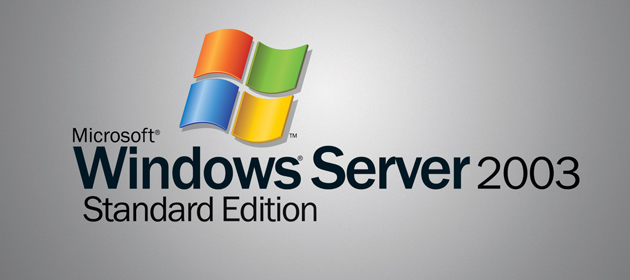Migrating from Windows 2003 is not as easy as it sounds; your technical staff may have made many changes in the past in the form of upgrades and migrations, but the Windows 2003 migration process is slightly more complicated. It is important to understand that this process if rather complex and the chances of failing are high because you may overshoot your budget in the process or fail to carry out the migration seamlessly within the allotted time frame.
 You may also miss the chance to add value to your business; therefore, it is important to know in depth about the factors that will make the migration from Windows 2003 smooth and hassle-free. By following these easy tips, you can prevent your business from facing unwanted downtime. You will also not have to take recourse to last minute fire-drill activities.
You may also miss the chance to add value to your business; therefore, it is important to know in depth about the factors that will make the migration from Windows 2003 smooth and hassle-free. By following these easy tips, you can prevent your business from facing unwanted downtime. You will also not have to take recourse to last minute fire-drill activities.
Read More at : Is there any Reason to Upgrade VPS to Windows Server 2016 OS?
Tips to ensure that migration from Windows 2003 takes place smoothly:
– To begin with, it is very important to take the end-of-life date provided seriously. Although the Windows server 2003 was a popular and much widely used OS and clients have shown reluctance to migrate from it, it is better to make preparations well in advance to avoid the blunders clients had made when the XP was discontinued.
– You should carry out an auditing process to ascertain exactly which systems are operating on the Windows Server 2003. This will help you to keep your IT staff well prepared to handle the movement when the time comes since there are some legacy apps which are tough to move. You should also find out which applications are no longer used and those that have been totally forgotten; this will significantly reduce your migration load making the task simpler and faster. Side by side, you can also determine which applications are used by only a handful of users and which can thus be discontinued.
– It is possible to determine the apps that may be virtualized and shifted to a virtual platform. This means that apps running currently on physical servers can be conveniently moved to the cloud. The businesses should also decide which applications can now be upgraded to satisfy the new and changed needs of customers.
Read More at : Windows On VPS Servers And Some Reasons For Its Growing Popularity
– You should consider recruiting a systems integrator who can deftly manage this migration process because the task is quite challenging in a large organization. So, third party help may be welcomed to reduce the burden on your IT staff and to make the process quicker.
– Finally, every business must get a realistic ballpark figure of total costs involved for migrating from Windows Server 2003. Migration is not going to be cheap but businesses have to work according to a realistic budget. Delaying the migration will not ease the budget; rather, costs are only likely to escalate if the process gets deferred. This is because the company will have to keep paying Microsoft for its technical support during this time.
It is important to take the deadline seriously because if Microsoft stops the support and the regular patches, the unsupported software becomes susceptible to cyber attacks. Careful planning is needed to avert disturbing business-critical applications.
Read More at : Linux VPS Hosting vs Windows VPS Hosting: Which one should you choose for your enterprise?






 Live Chat
Live Chat